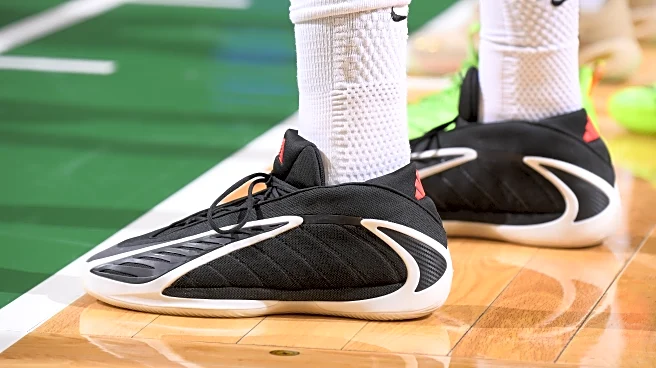What's Happening?
The Georgia Court of Appeals has ruled against Gainesville lawyer Shane Lazenby in a case involving allegations of illegal ambulance chasing by the Atlanta law firm Cambre & Associates. Lazenby had filed
a lawsuit claiming that Cambre & Associates engaged in unethical practices by obtaining information about auto accident victims before it was publicly available and using runners to solicit these victims as clients. Lazenby argued that these actions constituted racketeering under Georgia's Racketeering Influenced and Corrupt Organizations (RICO) Act, giving Cambre an unfair business advantage. However, the appeals court found that the facts presented were too speculative to support the RICO claim, leading to the dismissal of the lawsuit.
Why It's Important?
This ruling is significant as it addresses the legal boundaries of client solicitation practices within the legal industry, particularly concerning the use of aggressive tactics to secure clients. The decision underscores the challenges in proving racketeering claims under the RICO Act, especially when the alleged practices involve indirect or speculative financial losses. The outcome may influence how law firms approach client acquisition and could lead to increased scrutiny of solicitation practices by legal and regulatory bodies. It also highlights the importance of adhering to ethical standards and state Bar rules in legal practice.
What's Next?
Following the court's decision, Cambre & Associates may continue their current client solicitation practices, albeit with heightened awareness of legal scrutiny. Shane Lazenby and other similarly situated parties may consider alternative legal avenues or adjust their strategies in addressing perceived unethical practices. The ruling could prompt discussions within the legal community about the need for clearer regulations or guidelines regarding client solicitation and the use of runners. Additionally, state Bar associations might review their rules to ensure they adequately address such practices.
Beyond the Headlines
The case raises broader ethical questions about the competitive nature of legal practice and the lengths to which firms may go to secure clients. It also touches on privacy concerns regarding the acquisition and use of accident victim information. The ruling may lead to increased advocacy for stronger privacy protections and ethical guidelines in the legal industry, potentially influencing future legislation or Bar association policies.










